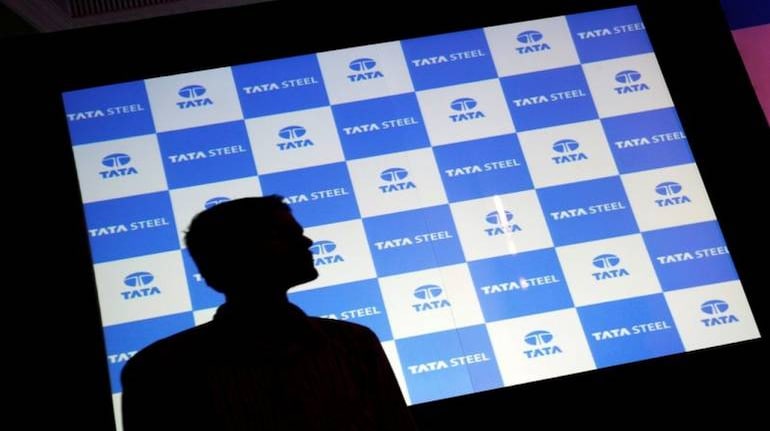



The consolidated net profit of Tata Steel plummeted 93 percent year-on-year to Rs 525 crore in the first quarter of 2023-24, weighed down by its Europe operations.
The company’s net profit was Rs 7,714 crore in the same quarter a year ago, and Rs 1,566 crore in the previous one (January-March 2023).
Profit in the quarter was also dented by a non-cash deferred tax charge on account of buy-in transaction at British Steel Pension Scheme. With this, the insurance buy-in of British Steel Pension Scheme has been completed, successfully de-risking Tata Steel UK, the company said.
The consolidated total revenue from operations came in at Rs 59,490 crore, which is 6.3 percent lower as against Rs 63,430 crore reported in the year-ago period. The revenue clocked is also around 5.5 percent lower as against Rs 62,961 crore reported in Q4FY23. The company said that the revenues decreased due to lower volumes, partly offset by higher realisations across geographies.
ALSO READ: Options Trade | An earning-based non-directional options strategy in Tata Steel
According to a Bloomberg survey of 12 brokers, Tata Steel’s consolidated net sales were expected to come in at Rs 56,337.80 crore, down 10.75 percent year-on-year (YoY). Net loss was estimated at Rs 122.80 crore, according to 11 brokers.
“During the quarter, global economic recovery continued to face headwinds affecting commodity prices including steel. In India, domestic steel demand continued to grow and was up around 10 percent on YoY basis but steel spot prices moderated in line with global cues,” TV Narendran, Chief Executive Officer and Managing Director, said in a statement.
Shares of Tata Steel closed on July 24 at Rs 115.45 a share on the BSE, down 1 percent over the previous close. The company announced its result after trading hours.
The steelmaker’s earnings before interest, taxes, depreciation, and amortisation (EBITDA) in Q1FY24 was Rs 6,122 crore as against Rs 15,047 in the same quarter a year ago. The company said that its EBITDA was at Rs 6,238 crore, adjusted for changes on account of foreign exchange movement on intercompany debt, receivables and BSPS.
Chief Financial Officer Koushik Chatterjee said, “Despite a moderation in global steel spreads, our margin was broadly stable at around 10 percent. India business generated higher margin of around 22 percent and EBITDA stood at Rs 7,514 crore.”
The company said in a presentation that its net debt rose to Rs 71,397 crore at the end of the June-quarter from Rs 67,810 crore at end-March.
“Volatility in steel markets has impacted working capital and cash flows but we continue to commit to growth in India and spent Rs 4,089 crore on capital expenditure during the quarter. This has led to a Net debt of Rs 71,397 crore. Group liquidity position remains strong at Rs 30,569 crore, which includes Rs 19,043 crore of cash and cash equivalents,” Chatterjee said.
India opsIndia revenue in Q1FY24 was Rs 34,901 crore, up 2.6 percent. But EBITDA declined to Rs 7,514 crore from Rs 9,582 crore a year ago.
“In India, domestic steel demand continued to grow and was up around 10 percent on YoY basis but steel spot prices moderated in line with global cues,” Narendran said. He was also reappointed by the board as MD and CEO at the board meeting on July 24 for another 5 years.
Tata Steel’s India business reported a strong showing with both production and deliveries growing. Crude steel production was around 5 million tons, up 2 percent YoY, primarily driven by ramp up at Neelachal Ispat Nigam Limited, which was acquired by a subsidiary of Tata Steel in 2022.
Deliveries in the June quarter were at 4.8 million tons, higher by 18 percent on YoY basis, driven by higher local demand.
Tata Steel said it is scaling up to capitalise on India growth opportunity and reiterated its plan to double its capacity to 40 million ton per annum (mtpa) by 2030.
Europe disappointsTata Steel’s Europe revenues were £2,083 million in the June quarter, and its EBITDA loss stood at £153 million. Revenues was lower on reduction in volumes, which was partly offset by increase in realisations, the company said.
“The planned relining of BF6 at Tata Steel Netherlands commenced in April and this has led to drop in crude steel production,” the company said.
With China increasing its steel exports amid weak global demand, the prices for the commodity moderated in the quarter.
“In Europe, margins were broadly similar on QoQ basis as rise in revenue per ton was offset by lower volumes and elevated input costs,” Chatterjee said.
Discover the latest Business News, Sensex, and Nifty updates. Obtain Personal Finance insights, tax queries, and expert opinions on Moneycontrol or download the Moneycontrol App to stay updated!
Find the best of Al News in one place, specially curated for you every weekend.
Stay on top of the latest tech trends and biggest startup news.